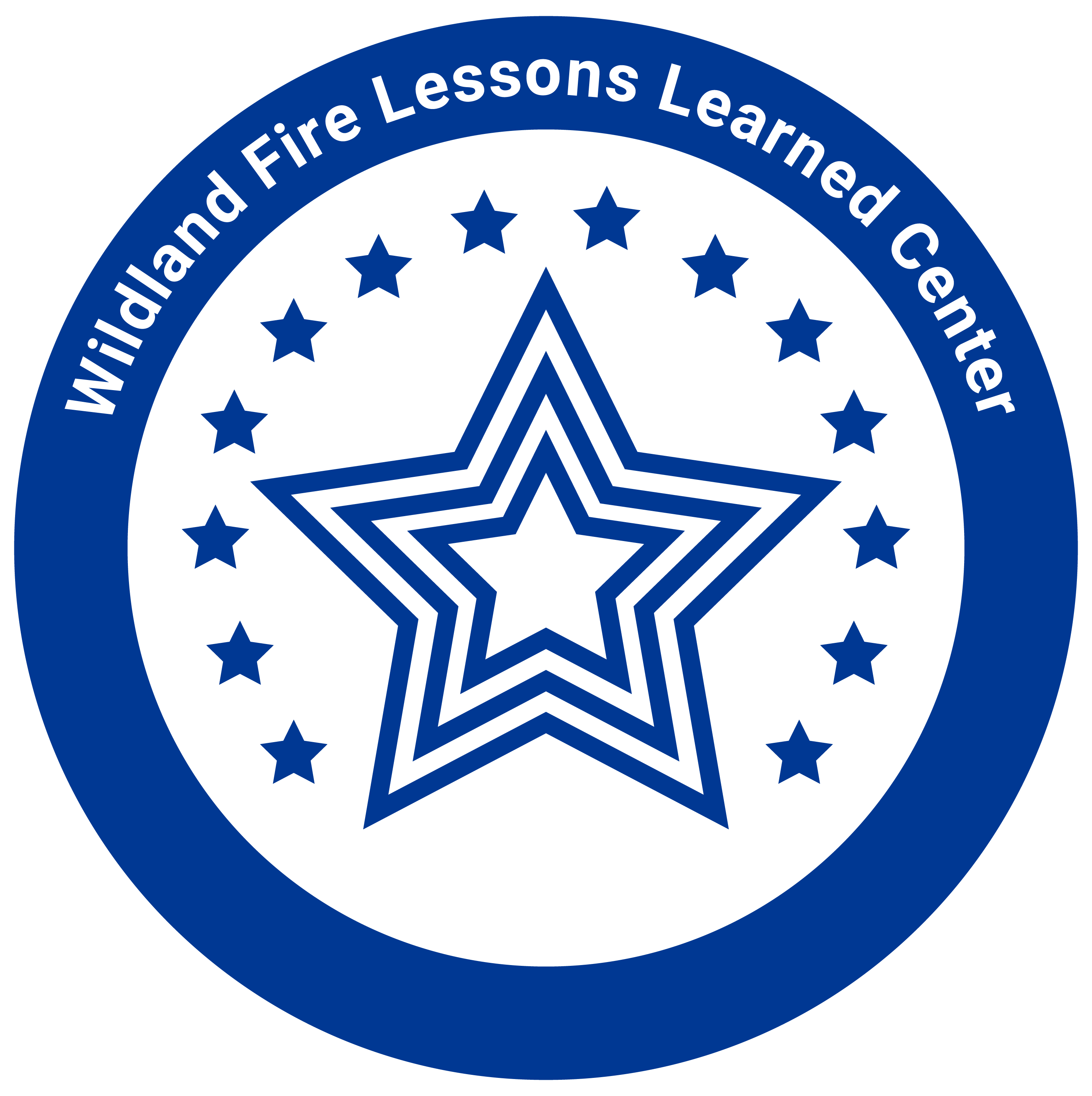Not Unique

By Travis Dotson, Analyst
Wildland Fire Lessons Learned Center
[This is Travis’s “Ground Truths” column from the 2023 Spring Issue of Two More Chains.]
Three weeks after Yarnell, I wrote this in the 2013 Summer Issue of Two More Chains:
"I think, right now, there are a lot of us who feel like 'tipping cars over'. We are angry, frustrated, confused, sad, sick, tired, lonely, scared, tormented, and all kinds of other stuff. We are not the best at dealing with grief. Most of us are horrible at it. I tell people I’m doing OK, but I still can’t sleep at night."
Knowing “the rest of the story”, that last part is hard for me to read.
At that time, I already had a fair number of stones in my coping cup. Yarnell just happened to be the one that caused overflow. My version of managing was typical: Run away and check out.
Yes, let’s acknowledge that we learn to use fire assignments to avoid the difficulty of home. Also, our cultural norms around alcohol are dumb, dangerous, and funnel more than a few of us straight into addiction.
Years of summer camp escapism and normalized alcohol abuse left me ill-prepared for the burden of big feelings. (Pro-Tip: Big feelings can swim, so don’t try to drown them.) I was always taught to overpower and double pour. I am a good student.
One year later, I wrote this in the 2014 Summer Issue of Two More Chains:
------------------------------------------------------------
Alcohol. Whether we want it to be or not, it’s part of our culture, and it’s problematic. It’s odd that many of us put a premium on physical fitness while operating throughout the season as functioning alcoholics. Trust me, I get the “work hard/play hard” mentality. Many of us feel we’re not cool if we aren’t waist deep in the party. But how many folks do you know with multiple DUIs—or consequences far worse. This is a bad deal on so many fronts, yet we continue to sit back and nod our heads at its prevalence.
Avoiding Mental Health/Emotional Well-being Issues. At least we talk about these things now. But talk is not action (just like reading is not learning). We experience stress and trauma on a regular basis and are notorious for dealing with it poorly. (Those previously mentioned topics are some of our crutches.) Seems as though “toughing it out” is real handy on a brutal night shift on Day 13, but not so much with repeated trauma and ensuing life stressors. I’m telling you, it does not feel cool to ask for help.
------------------------------------------------------------
Reminder: When I say “we”—I mean “me”.
Prior to the Big Y, I was “holding it together”. Just a typical work hard/play hard type of cat. Yarnell and its aftermath leveled up the intensity of the big feelings, so I dialed-up the “coping”. I ran away to fires, after-hours isolated, drank more, ruined relationships, and manufactured chaos in my general surroundings. I did a lot of damage in a quick three years. In 2016 I had a consequence induced moment of clarity and was given the gift of desperation.
I got help and I got better.
I am not unique.
There are countless versions of this story in our ranks. Certainly not specfic to Yarnell, although I know its victims are numerous. Impacts and reactions to the myriad of mishaps and life stressors are an unpredictable coalescence of our individual capacity at any given moment. Who we are, combined with how we live, increases the likelihood of overwhelm because the wildfire lifestyle is a classic rock radio station—“The Hits Keep Comin!”
Many of us are drawn to this work in pursuit of intensity. Our life outside the job is often just a different flavor of intensity (not always in a healthy way).
Our emotional struggles aren’t always directly associated with the job. But aspects of our profession complicate our ability to effectively tackle these types of issues—regardless of their origin.
In the normal progression of life, the consequences of not processing tend to balloon. When avoidance is your go to problem solver, your skillset for navigating the escalating complexity is a bit underdeveloped (to put it mildly). This formula consistently produces struggle and strife.
The emergence of intentional efforts to acknowledge and address addiction, suicide, and mental health struggles in the wildland fire service stem from seeds planted by visionaries well before 2013. I believe the trauma ripples emanating from Yarnell affected enough of us to create the collective empathy required for those seeds to grow. That is a gift.
We must accept the sadness of loss while remaining grateful for the path it illuminates.
To ALL of our fallen Tool Swingers: Thank You.
We move forward on the path in your honor.

